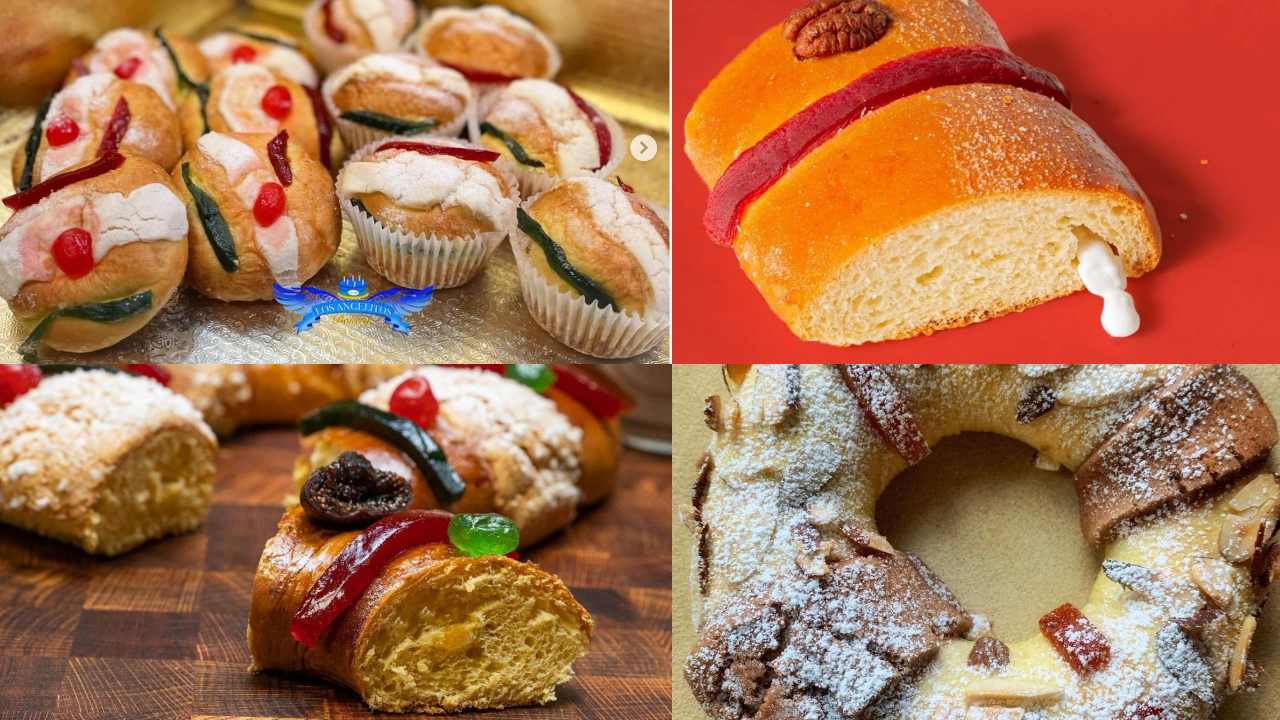A Rosca de Reyes is a crown of yeast and flour, usually decorated with crispy diamonds of sugary powder and jewels made of multicolored candied fruit peels and figs, guavas, and cherries. Inside one of the slices of this circular loaf of bread is a bite-size plastic toy baby meant to represent Jesus. The person who gets the slice with the inedible toy will owe his family or friends a tamales party on Dia de la Candelaría, which lands on February 2nd.
This old-school tradition is the center of El Día de Los Reyes Magos (Three Kings Day), which follows tamales eaten during Christmas. In many ways, it is an extension of the holiday season into the new year in many homes across Los Angeles.
The holiday's origin is a wild biblical story that involves the murdering of infants. But the short version is that three magic Reyes visit baby Jesus because the stars told them the babe was the new king on the block. The hidden figurine represents when Lil’ baby J hid from a grumpy old king who was trying to kill all the babies. But he lived! Until he didn’t … and then he did again!
And now we get king bread and tamales.
Traditionally, on January 6th, the Rosca is cut and dispersed among family, friends, or co-workers. Each person who is participating is given a piece. Whoever gets the plastic toy in their piece is tasked with throwing La Fiesta de La Candelaría. The toy is plastic these days, and some panaderías now put multiple baby Jesuses in their bread for the hell of it.
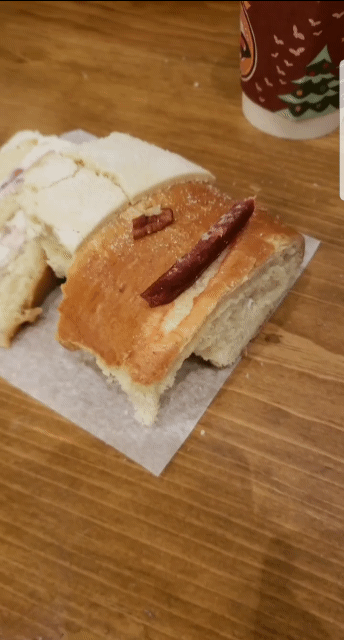
Even if you aren’t religious, anyone is willing to believe that the baby Jesus would have wanted more tamales and more parties for you in the future. La Rosca, as it is commonly called, is part of a tradition that, for many more of us, becomes an excellent excuse to eat more dense sweet bread, with steaming champurrado and maybe a generous pour of mezcal for good measure.
In Mexico’s traditionalist culture, “the holidays” extend from December 12 (the Virgen de Guadalupe feast day) to February 2, Dia de la Candelaría (Candlemas). And in between, you get Nochebuena (Christmas Eve), Christmas Day, and Three Kings Day (January 6), which is when kids usually get toys or other gifts—a key distinction to the American tradition of presents for kids on Christmas Day.
RELATED: Tamal or Tamale? ~ How to Correctly Pronounce the Singular Form of Tamales
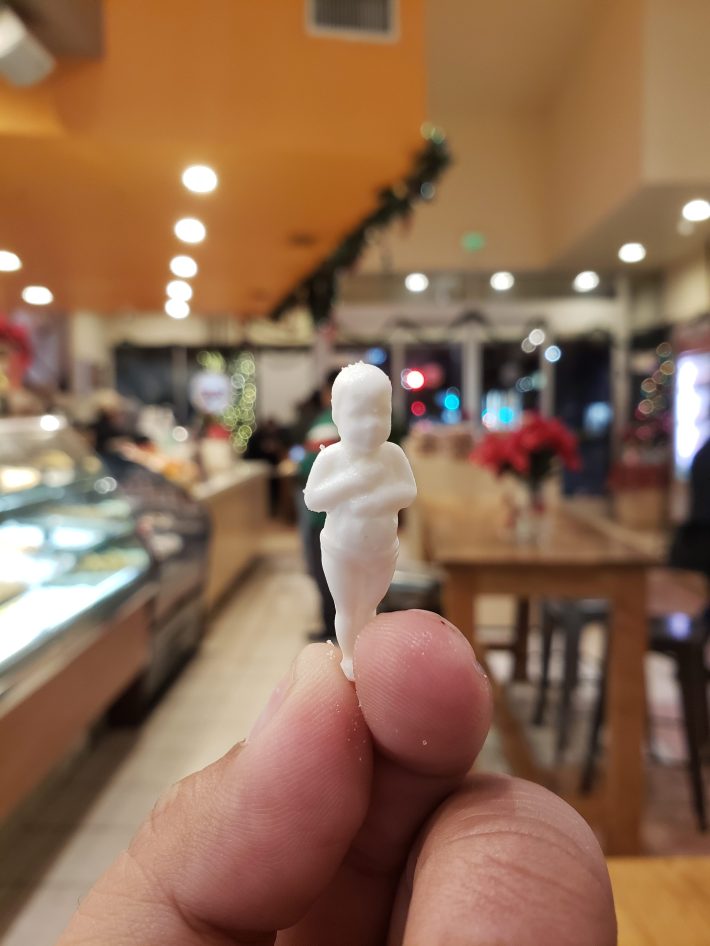
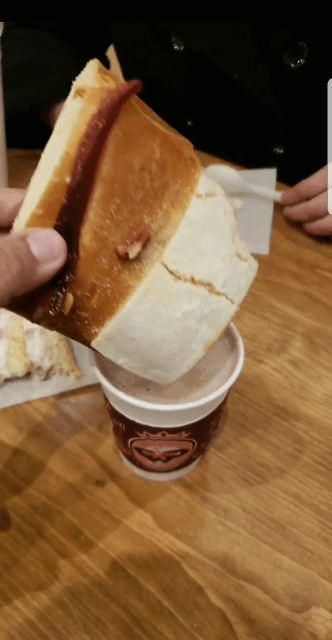
The taste of the rosca depends on the baker. It will generally have some citrus and spices like cinnamon, anise, and clove. The bread part of mass-produced rosca tastes like something in between a concha and pan de muerto. Some roscas can be bagel-like, and other roscas can be eggier and softer. The candied fruit on top of the rosca is like a fancy Fruit Roll-up, and the ends are crunchy from baking. A rosca is always better when dunked in some steaming chocolate, coffee or atole.
Three Kings Day is celebrated in Catholic nations like Spain, France, and many Spanish-speaking countries. In Mexico City, the holiday gets pretty crazy with big stunts like the mile-long rosca. In Los Angeles, the rosca tradition is becoming popular. The bread is big enough to share with a large group, and if well covered, it can be kept for days so that you can sustain the spirit of Three Kings Day with rosca and coffee in the morning. In New Orleans, they have a version as well known as King's Cake. However, theirs is traditionally stuffed with a brown sugar and cream cheese filling.
Roscas in L.A. is readily available at Latin American grocers or your local panadería. They are usually only sold during the week leading up to the celebration or the first week of the year. So get out there and get one of these bad boys, and hope to sweet baby Jesus you don’t have to buy the tamales (but if you do, here’s a list).
RELATED: Tamales are Christmas: Here is Where to Find Good Tamales in L.A. to Celebrate the Season
Where to Get Rosca in L.A.
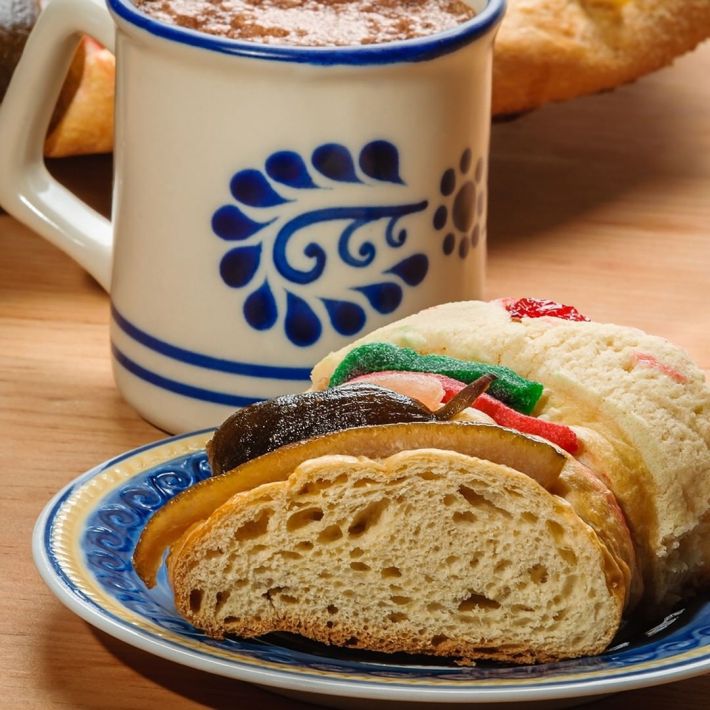
Panaderías
The renowned Cuban bakery chain Porto’s sells a super moist rosca de reyes, available for pick-up from January 2 to January 6, with reservations. In 2018, they made Los Angeles history by making a 24-foot long and 125-pound rosca. As impressive a feat as that is, that still isn’t as long as their lines.
Like last year, all eyes will be on Gusto Bread in Long Beach this year. This tiny bakery is the pride of Long Beach for its commitment to its masa madre-made (sourdough)-based pan dulce made with organic and locally-obsessed ingredients. Their sourdough rosquitas are personal-size and sold on a first-come-first-serve basis on weekends (Friday through Sunday) for the rest of the month. Come early because they sell out quickly, and there is a limit of six rosquitas per person.
The local panadería chain La Monarca has the bread readily available. They have been selling pan dulce for over a decade and make their rosca from scratch yearly with real butter and eggs (as opposed to commercial mixes, which many other bakeries use). This year, La Monarca is also selling individual rosca conchas, if you prefer a daintier concha-rosca hybrid with maximum dunkability.
At La Mascota, the famous Boyle Heights bakery, you can pre-order or walk in to pick up the pastry. You can also get tamales here if you are selected as the sponsor to throw your party next month. For perhaps the butteriest rosca in L.A., head to La Favorita, which has been serving its local community since 1971.
Another popular bakery chain, Pacific French Bakery—known for stellar baked goods but also for their long lines—has got you covered. It comes in a box that has the magic printed and it has the trademark candied stripes but also powdered sugar.
In East Los Angeles, Sonora Bakery is thee panadería on Whittier Boulevard for all your pan dulce needs, so you can bet they also bring it when Rosca season comes around. Los Angelitos Bakery in southeast L.A. is another favorite in the L.A. TACO community.
Markets
The Northgate Gonzalez supermarket chain that started in Anaheim has a panadería in every store. Each year, Northgate stores bake and sell roscas for Día de Reyes. It is one of the easiest ways to get sweet bread, especially considering that many family panaderías require advance orders.
Other chains like Super A Foods, El Super, and Vallarta Supermarkets offer roscas available to conveniently pick one up while buying groceries. The Super A in Paramount also sells rosca by the slice this time of year.
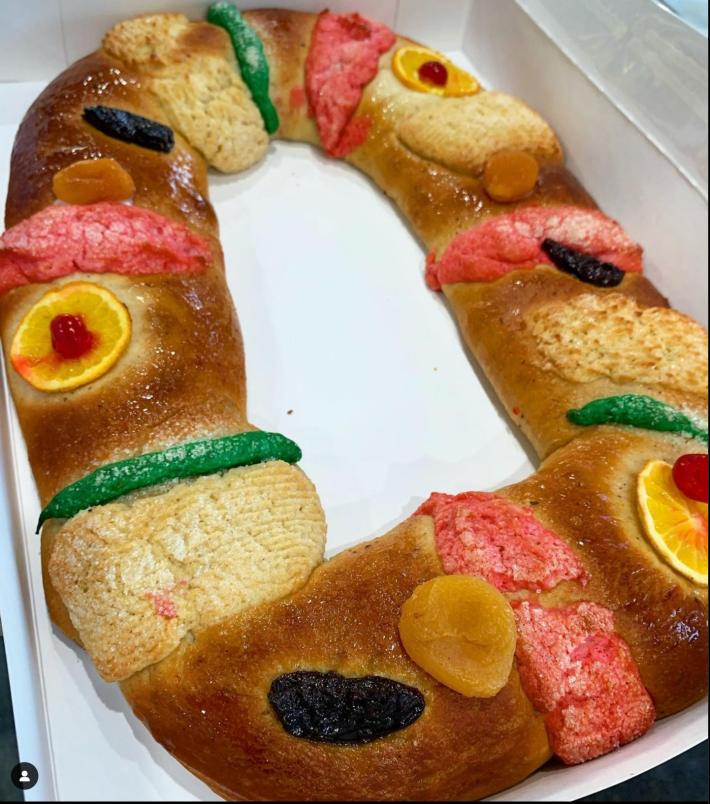
Vegan Roscas
Sol y Luna Donuts, a pop-up in East Los Angeles, will offer their vegan rosca again this year via DM.
Bake at Home
L.A. TACO recommends two recipes for those who prefer to try making a Rosca this year. The first one is by New York panadera, Fany "La NewYorkina" Gerson. Her book "My Sweet Mexico: Recipes for Authentic Pastries, Breads, Candies, Beverages, and Frozen Treats" is essential reading for any home panadero who loves to bake Mexican-style pastries at home. For a vegan version, L.A. TACO contributor Andrea Aliseda published a recipe on The Food Network that looks amazing.
This article was originally published in January 2019 and updated in January 2022. Javier Cabral contributed to this report.
RELATED: The True Story of How National Taco Day Was Invented — Then Appropriated
